I ask this question, because we're really stuck at finding the cause of a software crash. I know that questions like "Why does the software crash" are not appreciated, but we really don't know how to find the problem.
We currently do a longterm test of our software. To find potential memory leaks, we used the windows tool Performance monitor to track several memory metrics, such as Private bytes, Working set and Virtual bytes.
The software ran quite a long time (about 30 hours) without any problems. It does the same all the time, reading in an image from the harddrive, doing some inspection and showing some results.
Then suddenly it crashes. Inspecting the memory metrics in the performance monitor, we saw that strange steep rising of the working set bytes graph at 10.17AM. We encountered this several times and according to the dumpfiles, the exception code is always 0xc0000005 : "the thread tried to read from or write to a virtual address for which it does not have the appropriate access", but it appears at different positions, where no pointers are used.
Does someone know, what could be the cause of such a steep rise of the working set and why this could cause a software crash? How could we find out, if our software has a bug, when every time, the crash occurs the position of the crash is at another position?
The application is written in C++ and it runs on a windows 7 32bit pc.
